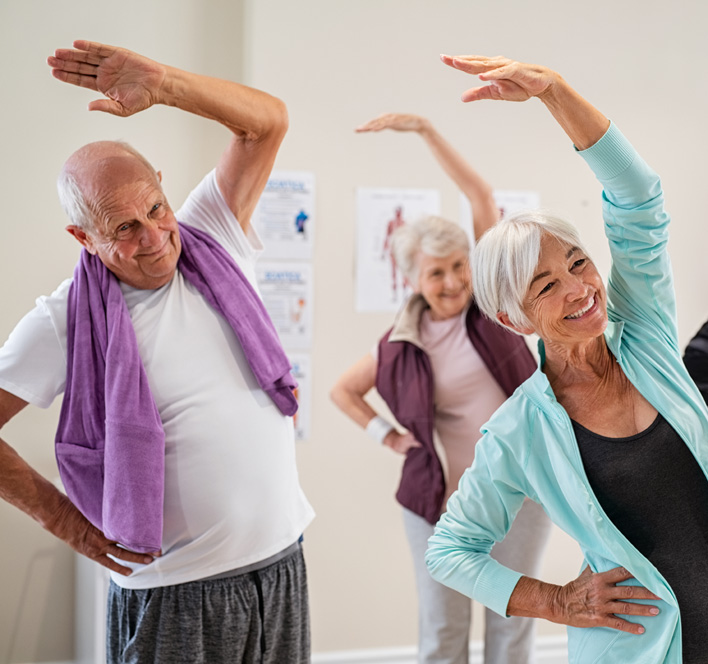Growing older is a privilege, and a long life can bring about many wonderful experiences and memories. Unfortunately, as our bodies age, we face the risk of falls, fractures, breaking bones, and painful osteoarthritis. Many seniors feel pain in their joints, but they may not realize that their lifestyle is contributing to their poor orthopedic health. Luckily, seniors can take certain measures to improve their orthopedic health and maintain a good quality of life in their old age.
From regular exercise to a healthy diet, there are simple ways for seniors to prioritize their orthopedic health to stay active and independent. If you are a senior dealing with fractures, dislocations, or painful joints of any kind, you should set up an appointment to address these issues with a trusted medical professional. At NJ Spine & Orthopedic, our experienced physicians and medical staff will work with you to improve your orthopedic health.
What Orthopedic Health Risks Do Seniors Face?
Senior citizens are more likely to face certain orthopedic health issues than younger people. One of the most common ailments for seniors is osteoarthritis. This condition occurs when the cartilage between the bones deteriorates over time, and the joints most frequently affected are the knees, hips, shoulders, and hands. The pain within these affected joints can make everyday activities nearly impossible to do.
In addition to osteoarthritis, many seniors face the risk of fractures due to brittle bones. Over time, bone mineral density will decrease and cause the bones to weaken. This increases the risk of fractures any time a senior falls on the weakened bones.
Also, seniors are at risk of dislocating their joints, which can be extremely painful. Many seniors are prone to fall due to poor balance. Falling can knock bones out of their joints, thus causing painful dislocations.
What Lifestyle Changes Can Seniors Make to Stay Active and Independent?
Senior citizens can make certain lifestyle changes to improve their orthopedic health. To begin, seniors should eat a healthy diet and get adequate sleep. Giving your body the right amounts of nutrients and rest will help your body function properly, especially as you get older.
Seniors who want to maintain or improve their orthopedic health should also prioritize getting regular exercise. Moving your body and avoiding a sedentary lifestyle is the key to good orthopedic health. Exercise is also a great way to improve balance, and lifting weights and other strength training can help build muscle. Also, seniors should remember to stretch before they exercise, as stretching can help with flexibility and lower the chance of getting hurt during any kind of physical activity.
The quality of life for many seniors depends on how easily they can move their bodies without experiencing pain in their joints. If you are a senior experiencing joint pain, it is not too late to take measures to improve your orthopedic health.
Contact the Professionals at NJ Spine & Orthopedic to Discuss Your Orthopedic Health Today
Senior citizens face higher risks of osteoarthritis, falls, fractures, and dislocations. As you age, a sedentary lifestyle and deteriorating joints can negatively affect your quality of life. If you want to prioritize your orthopedic health, you should eat a healthy diet, get enough sleep, stretch, and exercise regularly. Do not hesitate to reach out to one of our skilled medical professionals if you suffer from pain in your joints.
The experienced surgeons, physicians, and medical staff at NJ Spine & Orthopedic take the orthopedic health of our senior patients seriously. Let us treat your osteoarthritis, osteoporosis, fractures, or other ailments. Our amazing Concierge Team will also assist you in preparing for your appointment. Contact us today by calling (866) 553-0612 or by filling out our contact form.

